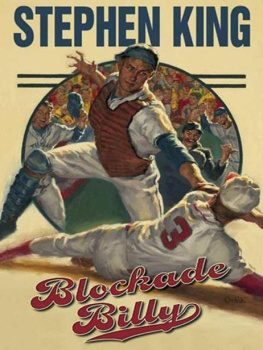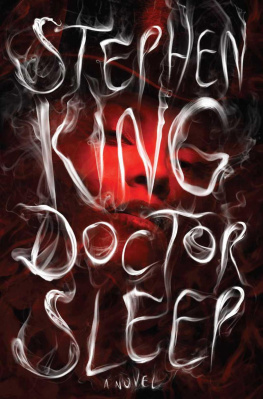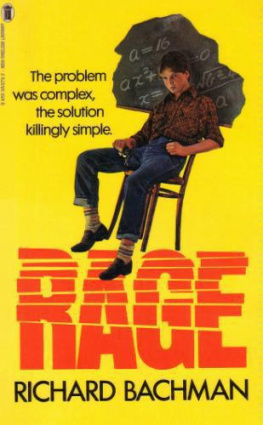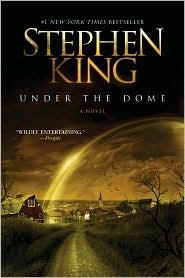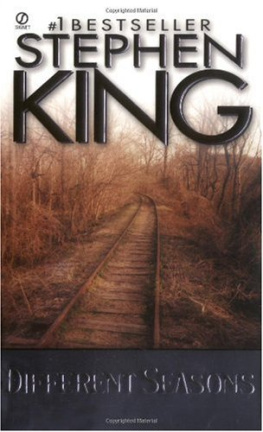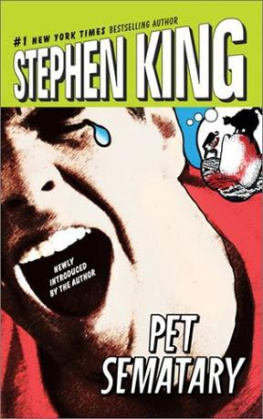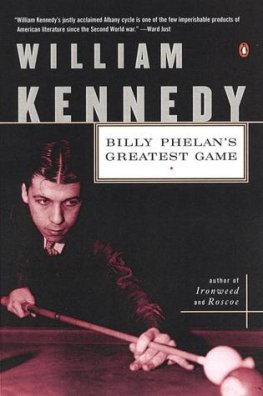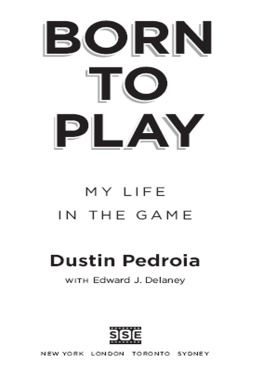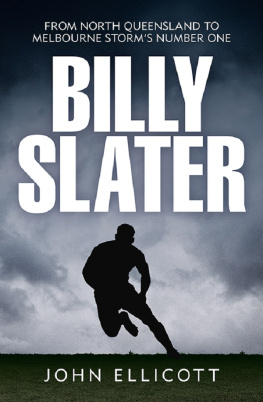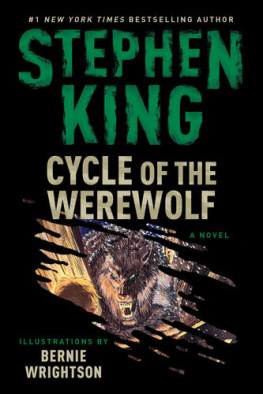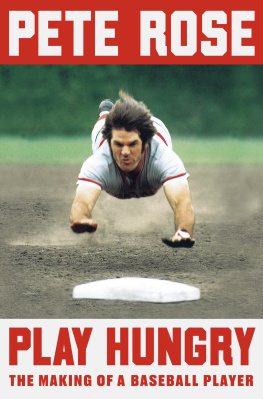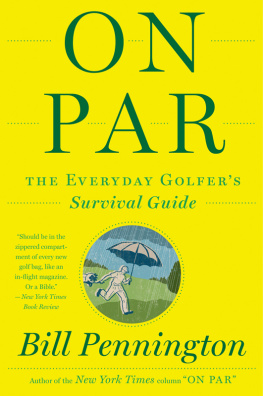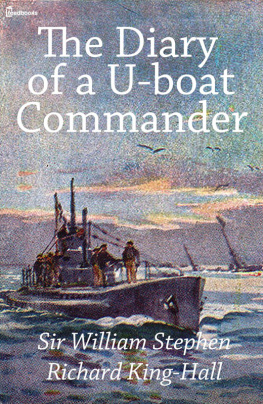Copyright 2010 by Stephen King.
Cover Artwork Copyright 2010 by Glen Orbik
Interior Artwork Copyright 2010 by Alex McVey
All rights reserved. No part of this book may be reproduced, scanned, or distributed in any printed or electronic form without permission. Please do not participate in or encourage piracy of copyrighted materials.
Storyville LLC
c/o Darhansoff, Verrill, Feldman
236 West 26th Street, Suite 802
New York, NY 10001
http://www.dvfliterary.com
eISBN: 978-0-615-36598-5
A hardcover first edition of Blockade Billy has been published by Cemetery Dance Publications.
http://www.cemeterydance.com

STEPHEN KING
Storyville
2010
This is for every guy (and gal)
who ever put on the gear.

Oh my God, you mean Blockade Billy. Nobodys asked me about him in years. Of course, no one asks me much of anything in here, except if Id like to sign up for Polka Night at the K of P Hall downtown or something called Virtual Bowling. Thats right here in the Common Room. My advice to you, Mr. Kingyou didnt ask for it, but Ill give it to youis dont get old, and if you do, dont let your relatives put you in a zombie hotel like this one.
Its a funny thing, getting old. When youre young, people always want to listen to your stories, especially if you were in pro baseball. But when youre young, you dont have time to tell them. Now Ive got all the time in the world, and it seems like nobody cares about those old days. But I still like to think about them. So sure, Ill tell you about Billy Blakely. Awful story, of course, but those are the ones that last the longest.
Baseball was different in those days. You have to remember that Blockade Billy played for the Titans only ten years after Jackie Robinson broke the color barrier, and the Titans are long gone. I dont suppose New Jersey will ever have another Major League team, not with two powerhouse franchises just across the river in New York. But it was a big deal then we were a big dealand we played our games in a different world.
The rules were the same. Those dont change. And the little rituals were pretty similar, too. Oh, nobody would have been allowed to wear their cap cocked to the side, or curve the brim, and your hair had to be neat and short (the way these chuckleheads wear it now, my God), but some players still crossed themselves before they stepped into the box, or drew in the dirt with the heads of their bats before taking up the stance, or jumped over the baseline when they were running out to take their positions. Nobody wanted to step on the baseline, it was considered the worst luck to do that.
The game was local , okay? TV had started to come in, but only on the weekends. We had a good market, because the games were on WNJ, and everyone in New York could watch. Some of those broadcasts were pretty comical. Compared to the way they do todays games, it was all amateur night in Dixie. Radio was better, more professional, but of course that was local, too. No satellite broadcasts, because there were no satellites! The Russians sent the first one up during the Yanks-Braves World Series that year. As I remember, it happened on an off-day, but I could be wrong about that. What I remember is that the Titans were out of it early that year. We contended for awhile, partly thanks to Blockade Billy, but you know how that turned out. Its why you came, right?
But heres what Im getting at: because the game was smaller on the national stage, the players werent such a big deal. Im not saying there werent starsguys like Aaron, Burdette, Williams, Kaline, and of course The Mickbut most werent as well-known coast to coast as players like Alex Rodriguez and Barry Bonds (a couple of bushers, if you ask me). And most of the other guys? I can tell you in two words: working stiffs. The average salary back then was fifteen grand, less than a first-year high school teacher makes today.
Working stiffs, get it? Just like George Will said in that book of his. Only he talked about that like it was a good thing. Im not so sure it was, if you were a thirty-year-old shortstop with a wife and three kids and maybe another seven years to go before retirement. Ten, if you were lucky and didnt get hurt. Carl Furillo ended up installing elevators in the World Trade Center and moonlighting as a night watchman, did you know that? You did? Do you think that guy Will knew it, or just forgot to mention it?
The deal was this: if you had the skills and could do the job even with a hangover, you got to play. If you couldnt, you got tossed on the scrapheap. It was that simple. And as brutal. Which brings me to our catching situation that spring.
We were in good shape during camp, which for the Titans was in Sarasota. Our starting catcher was Johnny Goodkind. Maybe you dont remember him. If you do, its probably because of the way he ended up. He had four good years, batted over .300, put the gear on almost every game. Knew how to handle the pitchers, didnt take any guff. The kids didnt dare shake him off. He hit damn near .350 that spring, with maybe a dozen ding-dongs, one as deep and far as any I ever saw at Ed Smith Stadium, where the ball didnt carry well. Put out the windshield in some reporters Chevroletha!
But he was also a big drinker, and two days before the team was supposed to head north and open at home, he ran over a woman on Pineapple Street and killed her just as dead as a dormouse. Or doornail. Whatever the saying is. Then the damn fool tried to run. But there was a County Sheriffs cruiser parked on the corner of Orange, and the deputies inside saw the whole thing. Wasnt much doubt about Johnnys state, either. When they pulled him out of his car, he smelled like a brewery and could hardly stand. One of the deputies bent down to put the cuffs on him, and Johnny threw up on the back of the guys head. Johnny Goodkinds career in baseball was over before the puke dried. Even the Babe couldnt have stayed in the game after running over a housewife out doing her morning shop-around.
His backup was a guy named Frank Faraday. Not bad behind the plate, but a banjo hitter at best. Went about one-fifty. No bulk, which put him at risk. The game was played hard in those days, Mr. King, with plenty of fuck-you.
But Faraday was what we had. I remember DiPunno saying he wouldnt last long, but not even Jersey Joe had an idea how short a time it was going to be.
Faraday was behind the plate when we played our last exhibition game that year. Against the Reds, it was. There was a squeeze play put on. Don Hoak at the plate. Some big hulkI think it was Ted Kluszewskion third. Hoak punches the ball right at Jerry Rugg, who was pitching for us that day. Big Klew breaks for the plate, all two hundred and seventy Polack pounds of him. And theres Faraday, just about as skinny as a Flavr Straw, standing with one foot on the old dishola. You knew it was going to end bad. Rugg throws to Faraday. Faraday turns to put the tag on. I couldnt look.
Faraday hung onto the ball and got the out, Ill give him that, only it was a spring training out, as important in the great scheme of things as a low fart in a high wind. And that was the end of his baseball career. One broken arm, one broken leg, a concussionthat was the score. I dont know what became of him. Wound up washing windshields for tips at an Esso station in Tucumcari, for all I know. He wouldnt be the only one.
But heres the point: we lost both our catchers in the space of forty-eight hours and had to go north with nobody to put behind the plate except for Ganzie Burgess, who converted from catcher to pitcher in the early fifties. He was thirty-nine years old that season and only good for middle relief, but he was a knuckleballer, and as crafty as Satan, so no way was Joe DiPunno going to risk those old bones behind the plate. He said hed put me back there first. I knew he was jokingI was just an old third-base coach with so many groin-pulls my balls were practically banging on my kneesbut the idea still made me shiver.
Next page
